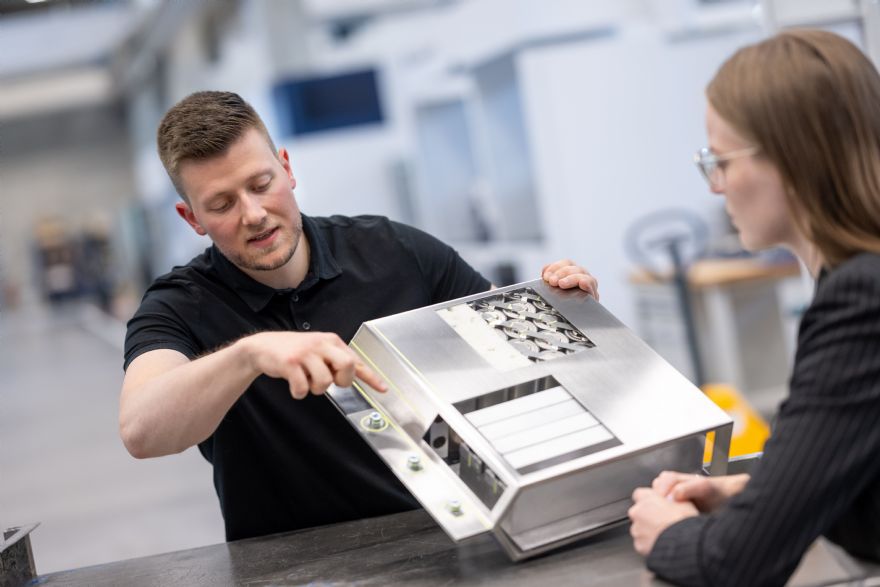 A Trumpf employee shows where the battery will be cut open by the laser
A Trumpf employee shows where the battery will be cut open by the laserFor the first time, the automotive industry and battery manufacturers can recycle used or defective batteries from electric cars on an industrial scale using laser technology developed by Germany-based
Trumpf. Represented in the UK by Luton-based
Trumpf Ltd, the high-tech company develops laser systems that cut used batteries safely and remove the valuable raw materials from the battery foil..
Hagen Zimer, Trumpf’s CEO of laser technology, said: “Recycling batteries makes ecological sense and, thanks to laser technology, can now also be implemented economically. Trumpf can draw on extensive expertise in laser welding and cutting for the production of electric vehicle (EV) batteries. We have been working with all leading car and battery manufacturers for years and have incorporated this experience into the development of the new processes.”
Trumpf will present the new laser processes for the first time at the leading trade fair for battery technology,
Battery Show Europe 2024, which is taking place 18-20 June in Stuttgart. Without valuable raw materials such as cobalt, lithium or nickel, there would not be any EV batteries. However, the extraction of these raw materials is expensive and not always sustainable and are susceptible to long and uncertain supply chains. In addition, the European Union requires a recycling rate of up to 90% for batteries.
Alexander Sauer, head of the
Fraunhofer Institute for Manufacturing Engineering and Automation IPA, said: “The EV battery industry has to recycle on a large scale, and as a result, the market for laser processes for recycling batteries, which is huge.”
In the EU alone, the industry will have to recycle 570,000 tonnes of battery material annually from 2030. The electrodes for new battery cells are created as foil strips coated with valuable materials such as cobalt and nickel. In a future recycling plant, laser processes can remove the wafer-thin layer from the foil. Manufacturers can collect the precious dust and process it for new coatings. Up until now, it was not uncommon for kilometers of coated foils to be thrown away.
In the future, Trumpf says laser technology could also be used to recycle battery packs. Laser technology is the only way to ensure efficient and automated dismantling, for example to remove the covers from batteries or to cut off cables. The raw materials can then be sorted and the battery cells that are still usable can be separated and reused directly. Until now, dismantling electric car batteries has been a manual process. It is laborious, slow and sometimes dangerous for workers.